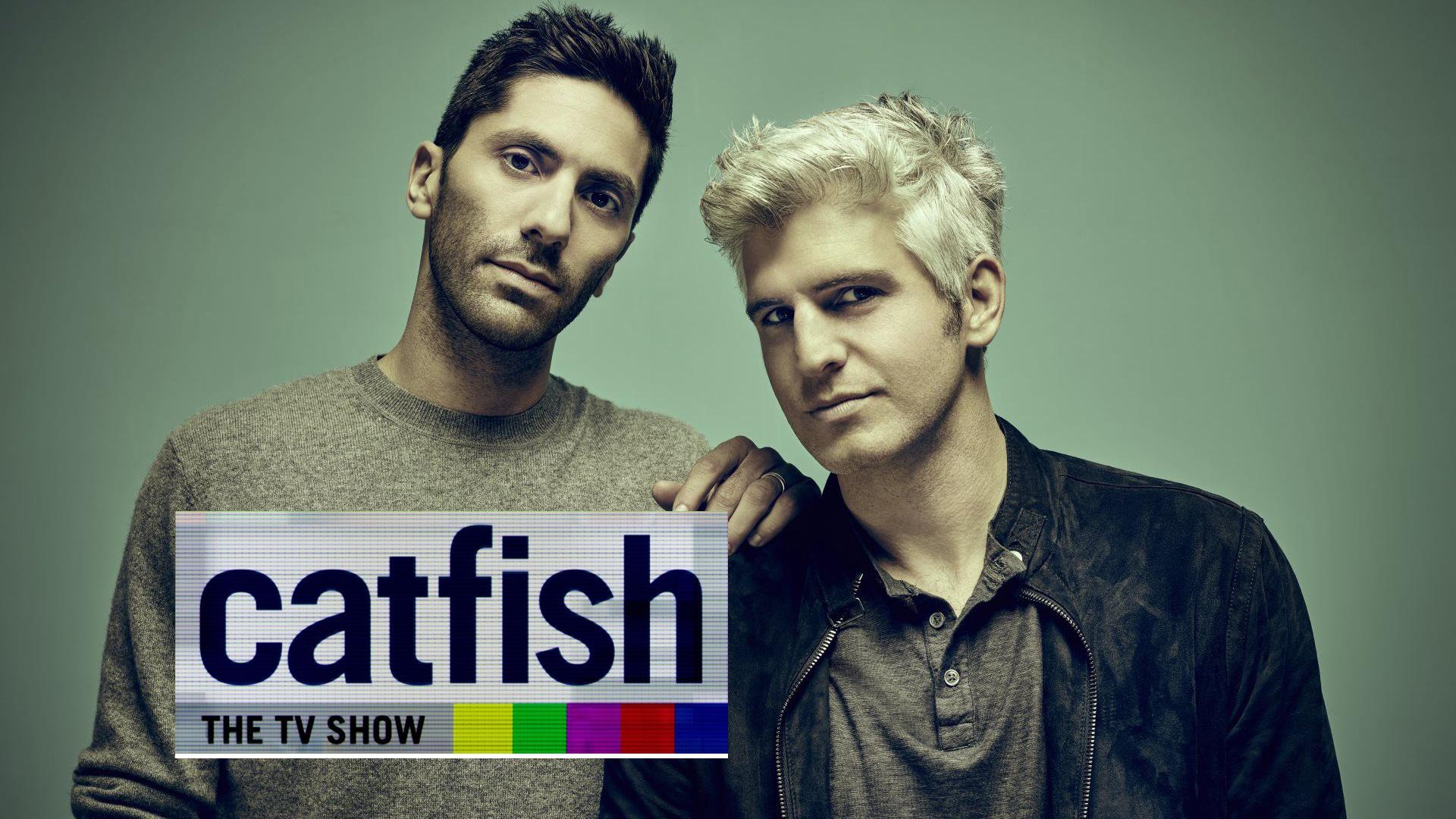Ever wondered if Catfish: The TV Show is real or just another scripted drama? Well, buckle up, because we're diving deep into the world of online relationships, deception, and authenticity. If you’ve been glued to your screen watching Nev and Max unravel tangled webs of deceit, you’re not alone. But is it all real, or is it just entertainment? Let's find out.
Catfish: The TV Show has become a cultural phenomenon, captivating audiences with its raw and emotional portrayal of modern dating dilemmas. The series, which premiered in 2012, follows hosts Nev Schulman and Max Joseph as they help individuals uncover the truth behind their online relationships. With millions tuning in each week, the show has sparked countless debates about its authenticity. So, is Catfish the show fake, or is it the real deal?
This article will break down the ins and outs of the series, exploring its production, the hosts' involvement, and the real-life impact it has on participants. Whether you're a die-hard fan or just curious about the truth behind the show, you're in for a treat. Let's dive in and separate fact from fiction!
Read also:Summer Glau Measurements The Ultimate Guide To Her Stats Bio And More
Table of Contents
- What is Catfish: The TV Show?
- Is Catfish the Show Scripted?
- The Production Process Behind Catfish
- The Real-Life Impact of Catfish
- How Involved Are the Hosts?
- Common Myths About Catfish
- Catfish Statistics and Trends
- Criticism and Controversy Surrounding Catfish
- How the Audience Reacts to Catfish
- Final Thoughts: Is Catfish the Show Fake?
What is Catfish: The TV Show?
Catfish: The TV Show is a documentary-style series that explores the complexities of online relationships. The show gained popularity after the release of the 2010 documentary "Catfish," which followed Nev Schulman's personal journey of discovering the truth behind an online romance. The series takes this concept and expands it, helping individuals from all walks of life confront their online partners in person.
Each episode typically follows a similar format: a participant reaches out to the show, seeking help in uncovering the truth about their online relationship. Hosts Nev and Max (or later, Laura Zak) then embark on an investigation, gathering evidence and eventually facilitating a face-to-face meeting between the two parties.
But here's the kicker—some relationships turn out to be genuine, while others reveal shocking layers of deception. The show's ability to capture both the joy and heartbreak of these encounters has made it a must-watch for millions of viewers.
How Does the Show Format Work?
- Participants submit their stories to the show.
- Producers evaluate the submissions and select those with compelling narratives.
- Nev and Max (or Laura) investigate the online relationships, often using social media, phone calls, and interviews.
- The episode culminates in a reveal, where the participant meets their online partner in person.
Now, let's address the million-dollar question: Is Catfish the show fake? Stick around, because we’re about to spill the tea!
Is Catfish the Show Scripted?
One of the most common questions surrounding Catfish is whether it's scripted. Critics argue that the emotional intensity and dramatic twists seem too polished to be entirely real. However, the show's creators and hosts have repeatedly emphasized that Catfish is unscripted and based on real-life stories.
That said, it’s important to note that reality TV often involves some level of editing and creative license. While the core narratives are genuine, the way they’re presented on screen may be enhanced for dramatic effect. For example, certain scenes might be rearranged or condensed to fit the episode's runtime.
Read also:Desmond Harrington Weight A Deep Dive Into The Fitness Journey Of A Hollywood Icon
The Editing Process
Editing plays a crucial role in shaping the narrative of any reality show. In the case of Catfish, producers aim to create a compelling story arc that keeps viewers engaged. This might involve:
- Selecting the most dramatic moments from hours of footage.
- Arranging scenes in a way that builds suspense.
- Highlighting emotional reactions to create a stronger impact.
While this doesn’t make the show "fake," it does mean that what you see on screen is a curated version of reality. So, while the relationships and revelations are real, the presentation might be slightly dramatized.
The Production Process Behind Catfish
Behind every episode of Catfish lies a meticulous production process. From casting to investigation, each step is carefully orchestrated to ensure the show delivers its signature blend of drama and authenticity.
The production team works closely with participants to gather as much information as possible about their online relationships. This includes reviewing social media profiles, conducting interviews, and even traveling to different locations to piece together the puzzle.
Casting the Perfect Story
Selecting the right participants is crucial to the success of each episode. Producers look for stories that are both compelling and relatable, ensuring that viewers can connect with the emotions on display.
Here’s how the casting process typically works:
- Participants submit their stories via the show's website or social media channels.
- Producers review the submissions, looking for narratives that offer a unique twist or emotional depth.
- Once selected, participants are interviewed extensively to gather more details about their online relationships.
This careful selection process ensures that each episode delivers a fresh and engaging story, keeping viewers hooked.
The Real-Life Impact of Catfish
While Catfish may be a TV show, its impact extends far beyond the screen. For many participants, the experience is life-changing. Some find closure, while others discover truths that challenge their perceptions of love and trust.
The show has also sparked important conversations about online safety, identity, and the nature of modern relationships. By shedding light on the darker side of the internet, Catfish encourages viewers to approach online interactions with caution and critical thinking.
Positive Outcomes
Not all Catfish episodes end in heartbreak. In fact, some participants find genuine love and connection through the show. These success stories serve as a reminder that, despite the risks, online dating can lead to meaningful relationships.
Here are a few examples of positive outcomes:
- Couples who meet on the show and go on to build lasting relationships.
- Participants gaining a better understanding of themselves and their needs in a partner.
- Viewers learning valuable lessons about online safety and authenticity.
While the show isn’t without its controversies, its ability to spark positive change cannot be overlooked.
How Involved Are the Hosts?
Nev Schulman and Max Joseph (and later Laura Zak) are more than just faces on the screen—they’re deeply involved in every aspect of the show. From investigating online relationships to facilitating emotional confrontations, the hosts play a pivotal role in bringing each story to life.
Nev, in particular, brings a personal connection to the show, having experienced his own catfishing ordeal. This authenticity helps him empathize with participants and guide them through the often tumultuous journey of discovering the truth.
The Dynamics Between Hosts
The chemistry between Nev and Max (or Laura) adds another layer of intrigue to the show. Their banter and camaraderie create a sense of camaraderie that keeps viewers engaged, even during the most intense moments.
Here’s how the hosts contribute to the show:
- Nev: The emotional anchor, offering empathy and guidance.
- Max (or Laura): The investigator, diving deep into the details and uncovering the truth.
This dynamic partnership ensures that each episode strikes the perfect balance between emotion and investigation.
Common Myths About Catfish
As with any popular TV show, Catfish has its fair share of myths and misconceptions. Let’s debunk some of the most common ones:
- Myth #1: The show is entirely scripted. While editing plays a role, the core stories are real and based on actual events.
- Myth #2: All relationships end in heartbreak. While many episodes reveal deception, some participants find genuine love and connection.
- Myth #3: Participants are paid to appear on the show. While compensation may be provided for travel expenses, participants are not paid for their involvement.
By separating fact from fiction, we can appreciate the show for what it truly is—a raw and honest exploration of modern relationships.
Catfish Statistics and Trends
Let’s talk numbers. Catfish has been on the air for over a decade, and its popularity shows no signs of waning. Here are some interesting stats and trends:
- The show has aired over 100 episodes across multiple seasons.
- Millions of viewers tune in each week, making it one of MTV's most successful series.
- Online dating continues to grow, with studies showing that over 40% of Americans have used dating apps or websites.
These figures underscore the show’s relevance in today’s digital age, where online relationships are more common than ever.
Criticism and Controversy Surrounding Catfish
No show is without its critics, and Catfish is no exception. Some viewers accuse the show of exploiting vulnerable individuals for entertainment purposes. Others argue that the focus on deception perpetuates negative stereotypes about online dating.
Despite these criticisms, the show’s creators maintain that their goal is to shed light on the complexities of modern relationships. By highlighting both the positives and negatives of online interactions, Catfish aims to educate and empower its audience.
How the Audience Reacts to Catfish
Fan reactions to Catfish are as diverse as the stories themselves. Some viewers are moved to tears by the emotional revelations, while others find themselves rooting for the participants to uncover the truth.
Social media platforms are abuzz with discussions about each new episode, with fans sharing their thoughts and theories. This engagement underscores the show’s ability to connect with audiences on a personal level.
Final Thoughts: Is Catfish the Show Fake?
So, is Catfish the show fake? The short answer is no. While the show employs some level of editing and creative license, the core stories are real and based on actual events. Catfish offers a fascinating glimpse into the world of online relationships, exploring themes of trust, identity, and human connection.
As we navigate the complexities of modern dating, shows like Catfish serve as a reminder to approach online interactions with caution and critical thinking. Whether you’re a long-time fan or a newcomer to the series, there’s no denying the impact Catfish has had on popular culture.
So, what’s your take? Do you think Catfish is real, or do you believe it’s all just a show? Let us know in the comments below, and don’t forget to share this article with your friends!


